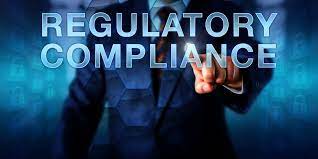Are you ready to learn how to implement electronic communications capture and supervision in your firm for better compliance and prevention of regulatory violations? Is messaging compliance giving your compliance function headaches. Welcome to a special 5 part blog post series on messaging compliance in a shifting regulatory landscape, sponsored by Global Relay. For this Part 3, I visited with Rob Mason on the current state of UK regulations on messaging apps and where it may be headed.
Staying ahead of the curve when it comes to the shifting UK regulatory landscape is vital for financial institutions and their compliance professionals. Keeping pace with the FCA’s evolving priorities, as well as ensuring ongoing compliance with GDPR and data protection, can have significant effects on the smooth functioning of your institution. Enhancing operational resilience and implementing effective employee communication monitoring are essential steps to take, in addition to exploring resources for regulatory technology solutions. By remaining updated and flexible, compliance professionals in the UK can successfully navigate the complexities of regulatory changes, ultimately resulting in an improved understanding of current and upcoming UK regulations.
Here are some key steps:
- Understand FCA’s evolving priorities and focus
- Keep up-to-date with GDPR and data protection
- Enhance operational resilience in your institution
- Implement effective employee communication monitoring
- Explore resources for regulatory technology solutions
1. Understand FCA’s evolving priorities and focus.
Navigating the shifting UK regulatory landscape as a financial institution can be complex, but a key step is understanding the evolving priorities and focus of the Financial Conduct Authority (FCA). As the FCA shifts its focus towards a broader oversight approach, financial institutions must remain up-to-date with emerging regulations and adapt their internal processes accordingly. This comprehensive understanding of FCA priorities is vital for compliance professionals, as it enables them to mitigate potential risks, ensure data protection, and maintain operational resilience in an ever-changing regulatory environment.
Mason noted the FCA’s increased focus on retail and consumer financial services in addition to wholesale markets, which has led to a broader oversight approach and also highlighted the importance of data protection and the impact that GDPR regulations and Brexit have had on the UK’s regulatory environment. Understanding the FCA’s evolving priorities and focus is crucial for compliance professionals in the UK, as it allows them to better adapt to the rapidly changing regulatory landscape. Being knowledgeable about current regulations and anticipating future changes can help institutions maintain compliance, safeguard data, and ensure operational resilience in the face of potential challenges. By staying informed and proactive, compliance professionals can successfully navigate the shifting UK regulatory landscape and contribute to the overall success and stability of their organizations.
2. Keep up-to-date with GDPR and data protection.
With the ever-changing regulatory landscape in the UK, remaining up-to-date with GDPR and data protection is more crucial than ever for financial institutions. One of the significant changes that has come to focus in recent times is the GDPR, which greatly impacts how businesses collect, store, and process personal data. Data protection concerns have now begun to take center stage not only in Europe but also across the globe. By understanding the requirements of GDPR and other data protection laws, financial institutions can adapt to the changes and avoid costly fines or reputational damage.
Mason said that Europe has been ahead of the curve when it comes to data protection concerns, and how new developments, such as Brexit, have further emphasized the significance of GDPR in the UK. He also discussed how monitoring employee communications became increasingly critical for large organizations to prevent scandals. By keeping up with these regulatory changes and understanding the impact they have on organizations, compliance professionals can better equip themselves to face the challenges that lie ahead. The importance of staying up-to-date with GDPR and data protection for compliance professionals in the UK cannot be understated.
These regulations help build a strong framework that ensures the protection of customer data, which is at the heart of any financial institution. Besides preventing financial and reputational damage, being compliant with GDPR and data protection laws allows organizations to maintain customer trust, demonstrate transparency, and ultimately contribute to the long-term success of their business. For financial institutions, being knowledgeable about these laws is not just a matter of regulatory compliance, but also a vital factor in creating a sustainable, ethical, and client-centric business. As the regulatory environment continues to evolve, staying ahead of the curve will prove indispensable for financial institutions and their compliance professionals.
3. Enhance operational resilience in your institution.
In today’s rapidly changing regulatory environment, financial institutions must be agile and proactive in order to stay ahead of the curve. Enhancing operational resilience is a key step in achieving this goal, as it allows organizations to effectively manage unexpected disruptions and challenges. A strong operational resilience framework not only prevents potential losses but also helps maintain stability and reputation in the face of adversity. To successfully navigate the shifting UK regulatory landscape, financial institutions must invest in the necessary resources, infrastructure, and skill sets required for effective risk management, business continuity, and crisis response mechanisms. In this context, it is crucial for these institutions to regularly assess their resilience measures and adopt best practices in line with emerging industry trends and regulations.
Strengthening operational resilience safeguards the institution from potential losses and reputational damage, ensuring long-term success in a capricious regulatory landscape. Moreover, addressing operational risks effectively is crucial in mitigating negative consequences on a larger scale, preventing widespread financial contagion. As the UK financial sector undergoes constant transformation, compliance professionals must be equipped to adapt quickly to emerging challenges. By prioritizing operational resilience and staying abreast of the latest industry trends, these professionals will be better prepared to navigate the shifting UK regulatory landscape, protecting both their institutions and their clients from potential adverse effects.
As a compliance professional in the UK, it’s essential to keep up with the shifting regulatory landscape in order to ensure your financial institution can effectively overcome any obstacles. Staying informed about the FCA’s priorities, GDPR, and data protection regulations is key to maintaining a strong compliance strategy. Additionally, focus on enhancing operational resilience, monitoring employee communications, and seeking out resources for regtech solutions. By doing so, you’ll not only stay compliant but also foster a more secure and thriving financial institution.
Join me tomorrow where we review the recently released Global Relay report, Compliant Communications 2023.
For more information on Global Relay, click here.







